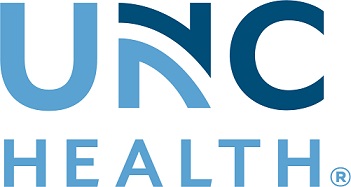Note to media: Dr. Kathleen Light can be reached March 15 and 16 at 919-966-2544 or at [email protected].
School of Medicine contact: Lynn Wooten, 919-966-6046 or [email protected].
By LESLIE H. LANG UNC-CH School of Medicine
CHAPEL HILL, NC -- New research at the University of North Carolina at Chapel Hill ties estrogen replacement to reducing blood pressure in older women with hypertension.
The reductions, observed for the first time under both stressful and restful situations, may help explain why fewer deaths from heart disease and stroke occur among women who opt for hormone replacement therapy after menopause.
"It has been unclear if this was a result of the estrogen itself or because these women tend to see their doctors more often and possibly get better treatment, or smoke less, eat better, or exercise more," said Dr. Kathleen C. Light, professor of psychiatry at UNC-CH School of Medicine.
In the UNC-CH study, 72 postmenopausal women were randomly assigned to take either estrogen (Premarin) or a placebo (an inactive, look-alike capsule). Of the group, 21 had been diagnosed with hypertension. These women especially interest researchers because hypertension increases risk
of heart disease and stroke. Lowering blood pressure reduces this risk.
The results were reported March 17 at the American Psychosomatic Society Annual Meeting in Vancouver, British Columbia.
Women with hypertension who took estrogen for six months showed an average blood pressure reduction of 5-12 points during high and low experimental stress conditions. The test conditions included a computerized problem-solving task and a "speech stressor" test, in which the study participants told of their actions and emotional reactions to personally troubling events.
"This beneficial drop in pressure was as great when the women were talking about events that had made them upset and angry and during mental challenges as when they were resting," Light said.
She explained that the drop was due to a relaxation, or "dilation," of their blood vessels.
"When vessels throughout the body constrict, the workload on the heart increases," Light said. "But if the heart's own vessels also constrict, the heart can't always get enough oxygen from the blood to
function well."
She also noted that anger, anxiety and meeting mental challenges can increase blood pressure and blood vessel constriction.
"High blood pressure within a constricted vessel makes it more likely that a clot or lesion in the vessels can stop blood flow through it entirely, resulting in some cases in a heart attack or stroke," she said.
During 24-hour monitoring at home, blood pressure levels also tended to be 3-6 mmHg lower after estrogen treatment than before. However, women taking a look-alike placebo pill showed no improvement, and in fact tended to increase their blood pressure.
These findings suggest that estrogen treatment itself is likely to be directly beneficial for postmenopausal women at risk for heart disease and stroke. But Light pointed out that these women were too few and were not studied long enough to definitively prove that estrogen replacement
reduces cardiac deaths. She says such a test is underway in the large multicenter Women's Health Initiative, which includes the UNC-CH study team.
Light, the director of UNC-CH's Stress and Health Research Program, said study participants with a prior hysterectomy took only one estrogen pill per day -- Premarin or placebo -- for six months. But to minimize any risk of uterine problems that might be associated with hormone replacement, other women took estrogen plus an extra pill, either progesterone or another placebo pill, for 10 days each month.
Also collaborating in the study were cardiologist Dr. Alan Hinderliter, gynecologist Dr. John Steege, psychologist Dr. Susan Girdler, and a team of graduate students and research assistants. That team included Monica Adamian, Sheila West, Karen Grewen, Jean Ranc, Jeannie Koo-Loeb and Sun
H. Chung.
###
